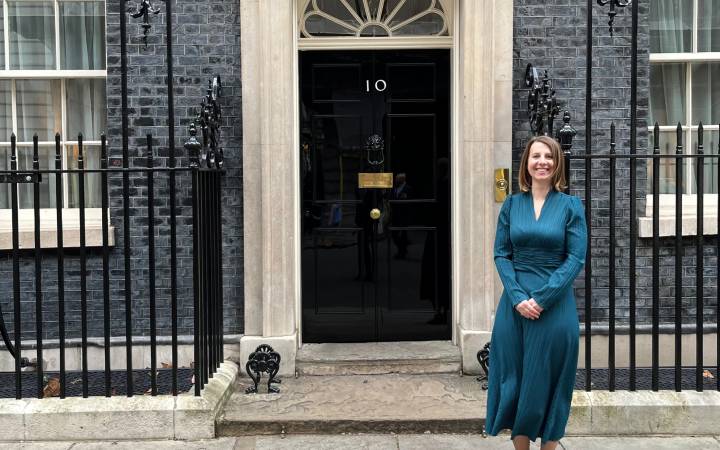Key to leadership success is sense of purpose, new Kingston Business School research shows
Posted Thursday 19 May 2016
 Image courtesy of Caiaimage/Rex/Shutterstock
Image courtesy of Caiaimage/Rex/Shutterstock
The question as to what makes a great leader is one that has preoccupied directors, trustees and electorates for centuries. Now Kingston University has joined forces with executive search business Adastrum Consulting to develop a new leadership model that sheds light on characteristics common amongst those on a trajectory to the top.
Research led by Dr Emma Russell and Dr Jo Yarker, from Kingston Business School, forms the basis for the new model. The study examines what drives leadership success and focuses particularly on the role and importance of ‘purpose'.
Despite attracting interest from business and HR industries, this concept has not, until now, been explored in depth, Dr Russell explained. "We can probably all think of several highly successful leaders who have achieved their business goals and made a lasting, positive impact on an organisation. And yet, on the face of it, those leaders can be very different in style and behaviour - what do Steve Jobs, Nelson Mandela, Angela Merkel and Richard Branson really have in common?" she said.
Dr Russell, who leads the Kingston Business School's Well-being at Work (WWK) research group, interviewed senior leaders in a variety of industry sectors to identify what a sense of purpose means in the context of successful leadership. "Our research suggests that highly effective leaders align their personal values with their definition of success, and are concerned with the impact they have and the legacy they leave. This gives them a clear sense of purpose," she said.
When Dr Russell and Dr Yarker began to explore the subject, they realised that although the notion of ‘purpose' is not a new one, academic research into leaders with ‘purpose' is limited. "Our research considered not only the characteristics of those who lead with purpose and those who do not, but also what drives behaviour, how success is defined and how this success is achieved," Dr Russell said.
As a result of the research, Dr Russell devised an innovative ‘Leaders with Purpose' model that she believes can be used in selection processes to better identify those with strong leadership potential. "We can help organisations to understand the barriers that may be preventing people with purpose leading effectively and well," she said. The model could also be used in leadership development as a foundation for individual coaching - assisting high-potential talent and future leaders to identify their sense of purpose and help them translate that into success.
Chris Underwood, managing director at Adastrum Consulting said the research illustrated the need for a whole new approach to identifying, assessing and validating success in leadership. "For too long the spotlight has been on specific sets of static characteristics and a focus on ‘leaders' and ‘followers', without taking into account the vital role that a sense of purpose plays," he said. "We have long felt that without a strong sense of purpose, leaders cannot be successful, and this new model appears to validate that assumption."
Mr Underwood called upon organisations to rethink their approach to leadership to include a renewed focus on the importance of purpose and identify ways to remove barriers to success. He also emphasised that sense of purpose is time-bound and personal to each leader, something that individuals often understand, but organisations may not. "Leaders reach the point where they fulfil their purpose within a role and they either need to find a renewed sense of purpose, which may come through a different role or a promotion, or they leave the organisation to find it elsewhere," he said. "It is vital that organisations take this into account and organise their succession planning and leadership development strategy appropriately."
Dr Russell and Dr Yarker hope to build on the findings by engaging more participants from industry and business, but results so far are encouraging. They believe the research has brokered new ground in the development of leadership modelling. "While still a working model at this stage, it nevertheless has the potential to turn much conventional thinking around leadership on its head," Dr Russell said.
- Find out more about the Well-being at Work (WWK) Research Group at Kingston University.
Contact us
General enquiries:
Journalists only:
- Communications team
Tel: +44 (0)20 8417 3034
Email us



